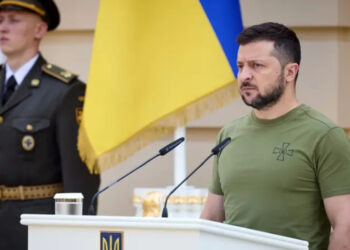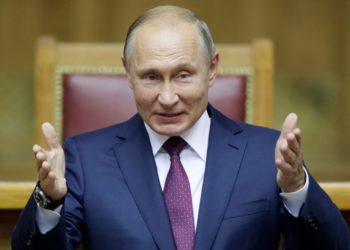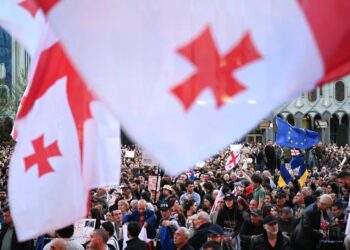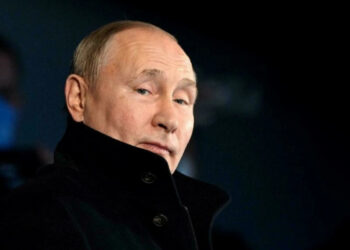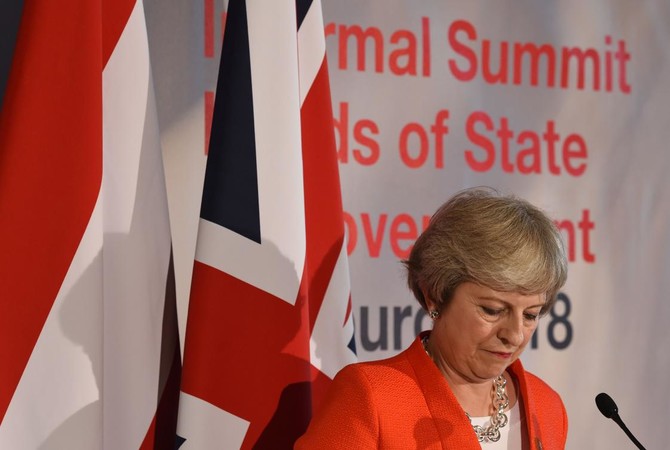It seemed that the regime of Venezuelan President Nicolas Maduro could come to its end on April 30, when protesters took to the streets after opposition leader Juan Guaido declared he was “beginning the final phase of Operation Freedom.”
Guaido, who was the speaker of the National Assembly and self-proclaimed acting president, urged his supporters and the military to rally against Maduro’s rule and topple it.
“There was a lot of singing, there was a lot of shouting, there was a lot of enthusiasm and defiance. And people say: ‘Well, it didn’t happen on Tuesday [April 30], but let’s keep going’. But: in reality, where I was, there were maybe three hundred people, half of them — journalists,” Tom Phillips, The Guardian reporter, who was at the time in Caracas, recalled the situation.
The protests lasted for less than a week. The uprising was thwarted by the police and the Army, allowing Maduro to stay in power. However, the U.S. Secretary of State, Mike Pompeo, claimed that Maduro was ready to leave for Cuba with his plane prepped on a runway. But “the Russians indicated he should stay,” Pompeo said.
BREAKING: @SecPompeo tells @wolfblitzer that Nicolas Maduro was preparing 2 leave Venezuela but was talked out of it by the Russians. Pompeo said. “He had an airplane on the tarmac, he was ready to leave this morning as we understand it and the Russians indicated he should stay
— CNN NationalSecurity (@NatSecCNN) April 30, 2019
Why Would Russians Support Maduro?
When it comes to the Kremlin interests in Venezuela, two words emerge – oil and weapons. Moscow and Caracas have a long history of cooperation based on trading these essential goods.
Russian state oil company Rosneft has shares in five projects of Venezuelan oil company PDVSA, also state-owned. In addition to that, Rosneft lent PDVSA money and, according to Reuters, helped it bypass the U.S. sanctions.
“Russia has military-technical cooperation with Venezuela. Which means it is providing weapons, but it won’t fight for Venezuela in case of an actual war,” Ruslan Pukhov, director of the Centre for Analysis of Strategies and Technologies, told The Globe Post.
The first weapon supply contract between Russia and Venezuela was signed in 2005. Since then, the two countries have negotiated dozens of such deals worth $11.5 billion.
“At some point, Venezuela was an important market for Russian military industry entering the top-5 and top-3 clients rankings,” Pukhov said. “Currently Russian-Venezuelan partnership is being put, I would say, on a strategic hold due to the Venezuela economic crisis.”
If Guaido wins in Venezuela, all contracts signed with Russia after 2015 will come under threat, because ever since the Venezuelan opposition won the 2015 parliamentary election, the Maduro’s government didn’t seek the National Assembly’s approval for many of the investment deals, even though it went against the Venezuelan law.
In late March, Russia sent troops to Caracas.
“Military experts are there; they are tasked with the practical implementation of provisions of military-technical cooperation agreements,” Maria Zakharova, a Russian foreign ministry spokeswoman, explained.
A U.S. official told Reuters, however, that the U.S. government believed one hundred of those experts were made up of special forces including “cybersecurity personnel.”
The Kremlin tried to make clear it was supporting Maduro because he was the only legitimate president of Venezuela.
“A destructive external interference grossly violates fundamental standards of international laws,” President Vladimir Putin’s administration said.
“Kremlin never said it was supporting Maduro to protect Russian investments [in Venezuela]. Although it recognizes those investments and their importance, it doesn’t recognize them as a reason to protect the regime,” Professor Viktor Jeifets, the director of the Centre of Ibero-American Studies at Saint-Petersburg State University, told The Globe Post.
Main Reasons to Support Maduro
Guaido is recognized as the president of Venezuela by most South American nations, the U.S. and some European countries, but not Russia.
The United States and more than 50 other countries have recognized Juan Guaidó as the legitimate leader of Venezuela.
China, Russia, Iran, and other nations still recognize Nicolas Maduro's claim to power.
Read about Venezuela's constitutional crisis: https://t.co/r4Nv6VMiTm pic.twitter.com/c4Wve4piUK
— CSIS (@CSIS) May 19, 2019
“First of all, Russia really does not like an attempt to change the regime in Venezuela using power, as well as it doesn’t like color revolutions,” Jeifets said, noting that Moscow also doesn’t like to push away allies, especially those who were there when Russia needed it most.
In 2008, Venezuela appeared to be one of the few countries that recognized the independence of Georgia’s breakaway regions of Abkhazia and South Ossetia, while some other supposed allies Russia had did not do the same.
“Therefore, Hugo Chavez and, later, Nicolas Maduro regime became a definitive ally. And the Kremlin cannot drop an ally during the new Cold War, even a weak ally whose reputation was spoiled. It’s like a suitcase without a handle — hard to carry, pity to leave,” Jeifets explained.
Moscow will keep supporting the Maduro government because it doesn’t want to lose face, the professor noted.
“Moscow doesn’t want to stop supporting Maduro because it will be seen as a sign of weakness, not as a will to compromise,” Jeifets said. “Moscow isn’t going to move on from Venezuela any time soon.”




